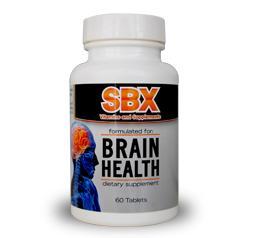Complementary Treatment of Schizophrenia with Antioxidants
If you have schizophrenia you should be taking a supplement with antioxidants in it. Our opinion is not formed from anecdotal evidence, it is based on third party research and data that I believe you will find both interesting and compelling.
In 2012 a systematic review of whether antioxidant supplementation can improve the symptoms of schizophrenia was conducted at the Erasmus University Medical Centre in Rotterdam. This review included many of the studies that we already refer to on our antioxidant page, but it also contained some additional studies (we will update our page shortly). The study concluded in its own words "that antioxidant supplementation may decrease symptoms of schizophrenia. Especially those suffering from positive symptoms could benefit from this treatment." 
As always, it is worth looking at some of the details. How robust are this review and the four studies underlying it? In determining whether an improvement in symptoms had occurred, the review only included studies that used psychiatric scales as a benchmark. All studies were randomized, double blind, placebo controlled except one. In two out of the four studies several psychologists and medical practitioners assessed the patients to ensure that bias was removed.
There were 14 studies in the original pool but only 4 were included in the review.
So what were the results of the individual studies? Here are some main points from the review:
Positive Symptoms
1. All studies that used the SAPS questionnaire (designed to assess positive symptoms) as one of the outcome measures, reported a significant improvement of positive symptoms within the treatment group.
2. In two studies the SAPS score also improved in the placebo group, but it showed significantly more improvement in the treatment group of these 2 studies.
Negative Symptoms
3. In the three studies where SANS (a scale used to assess negative symptoms) was used, no group showed a significant improvement but a significant improvement did occur in the treatment group relative to the placebo group.
General Symptoms
4. BPRS ( a scale that assesses 24 symptoms such as anxiety, guilt, tension etc) was used in 2 studies. In both, the treatment group scored significantly better after antioxidant therapy and this improvement was more than in the placebo group.
Other scales also demonstrated an improvement in the treatment group and you can look at these in the text of thee review if they interest you.
So why do antioxidant work as a supplemental treatment for schizophrenia?Research conducted at the School of Medicine, Zhejiang University in 2006 in china and separately in 2009 by Osman Virit, MD in the Department of Psychiatry at Gaziantep University in Turkey have both indicated that people with schizophrenia have a defect in their antioxidant defense which leaves their vulnerable brain cells susceptible to damage from reactive oxygen species. Dr Virit states that:
"Known oxidative stress that causes oxidative cell damage and thus contributes to the pathophysiology of schizophrenia, may be mainly related to this defensive defect".
The Verit study found healthy individuals and patients with schizophrenia had similar levels of levels of oxidants but that patients with schizophrenia had fewer antioxidants to combat them. Although the studies were independent, the 2009 study also confirms the work of the earlier 2006 study that showed that lower levels of antioxidants in patients with schizophrenia correlate to higher positive and negative symptoms scores.
As antioxidants can neutralize free oxygen radicals, researchers hypothesize that antioxidants may be able to decrease the severity of the disease.
It may also be important to ensure that those suffering from schizophrenia receive treatment with antioxidants as early as possible. According to a University of Pennsylvania study some people might not respond to treatment with antipsychotics because of damage caused by free oxygen radicals. This would tend to suggest that antioxidants may be able to protect sufferers of schizophrenia from more serious damage. It also suggests that there may be a point where antioxidants can no longer work and conversely a point where they can help prevent the onset of the disease.
From a scientific point of view we would agree that more research needs to be done, particularly to determine which antioxidants are more effective and the desired dose. In the meantime we can see very little reason not to take antioxidants, given that they appear to be a natural treatment with no reported conflicts with medication.
We have gathered together many of the important studies on our site. We hope that they are starting to get the attention of psychiatrists, psychologists and other practitioners. We recommend that those suffering from schizophrenia increase their intake of foods that are high in antioxidants as well as take a supplement. Such foods include small read beans, blueberries, cranberries, artichokes and prunes. If you would like to find more they are set out here.
SBX contains vitamin A, Vitamin C, Vitamin D and Vitamin E which are all antioxidants. It also contains Ginkgo Biloba which is known to have antioxidant properties.
Follow @sbxsupplements


